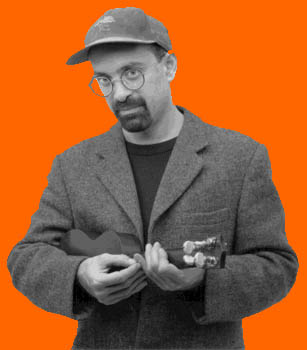"They're baroque. They have great range, punch. And they fall all over
themselves in metaphor, not to mention the most important thing: an
underpinning of truth, emotional truth. I try to relay, with any luck, some
universal emotional thing in the gut vicinity."
